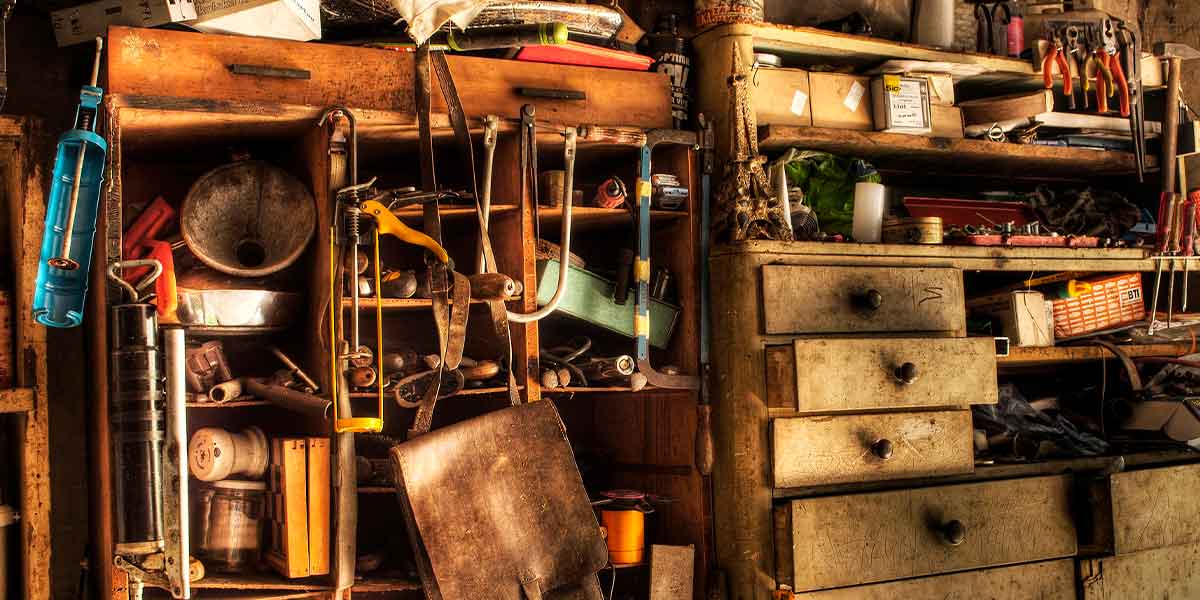Hoarding affects an estimated 1.4% of the United States population. Estate planning with a hoarding situation is no ordinary undertaking – there is no limit to the potential wealth buried in the depths of the home. Working with an estate planning attorney who is well versed in hoarding cases can make estate planning that much easier and you may discover some important items along the way.
In 2010, hoarding was brought into the mainstream with the premier of the show Hoarders: Buried Alive. For the majority, this foreign world comes and goes with the start/end of the tv show. For approximately 1.4% of American Households, this tv show is a reality. Hoarding, a very serious psychological condition associated with obsessive-compulsive disorder (OCD), is often swept under the rug and kept a secret that doesn’t surface until after the affected person passes away. When a family member or loved one is affected, understanding the disorder and its nuances is critical to creating a viable estate plan.
What Counts as Hoarding?
Compulsive hoarding is characterized by the excessive acquisition of and inability to properly manage large quantities of material goods such as paper, containers, furniture, and electronics. Hoarders typically form unhealthy emotional attachments to these items, making it impossible to willing part with these items. It is reasonable to want to scrap everything immediately. However, within the mess, valuable assets often lay, waiting to be discovered. Family members should take particular care when handling any files/documents found as these can contain things such as PO box information, checks, cash, outstanding bills, etc. Some of these resources could be used towards expenses regarding the estate, allocation of wealth, and preventing any legal incidents from manifesting due to not paying bills/debts.
Executor’s Responsibilities
The executor, an appointed individual who is given the legal responsibility of any remaining financial obligations left by the deceased, should document any money and items of value including art, jewelry, and appliances for tax purposes. Items worth more than $1,000 dollars may require appraisal by a certified appraiser to avoid penalties. Penalties for undervaluing an estate can be severe, especially if it crosses the line of tax evasion. Maintaining a basic understanding of your state’s tax and estate laws can help avoid tax evasion scenarios.
Disposal of Items
Once items of value have been appraised and all other non-trash items have collected, you will have to decide what to do with them. You will be plagued with the question: Should I keep, sell, or donate these items? The answer to this question should be considered carefully. There are various factors you should consider, including:
- Can you/family/friends use any of these items?
- Space to store these items
- Upkeep of the items to keep them in good condition
- Monetary value of the items
Depending on your individual circumstances, you will be able to best determine where these items should go. If any of these items are family heirlooms, you may want to consider keeping them or passing them along to a family member who places value on the item. If the items are a bunch of random items no one has any use for, but you have the space and time to store the items, consider privately selling them. This can be done via garage sales, taking items to pawn shops, auctions, and various social media sites. Facebook Marketplace, Craigslist, and Ebay are always good options for selling items. With this option, having space for the items is vital as it could take quite some time to find buyers for the items. One must also consider the time it takes to clean the item, photograph the item, list it, and how long it could take for the item to sell. If it’s a highly sought after item with a big following, it could sell in seconds – or it could sit for months before being sold. Some specialized items such as sports memorabilia, autographed items, and music equipment have sites devoted to selling new and used items so listing on these sites can help some things sell quickly. It is important to keep track of the proceeds as these can increase the estate’s value.
The fastest, cheapest, and easiest option is to donate the items to a charitable organization. Some charities only accept specific items or have strict intake procedures so be sure to do a little bit of research before dumping any goods off. Most metropolitan areas will have Goodwill, Salvation Army, and a number of similar organizations so it won’t be difficult to find a place to donate items. In the instance that a charity agrees to take everything, you can get your donation written under a 501 (C)(3) charity. With a valid receipt proving this, you may be eligible to receive a tax write off.
For large undertakings, it may be worth outsourcing all the work for a fee. Banks and privately held companies offer estate cleaning services, some of which can include evaluation of certain items. In instances of large properties or extremely cluttered areas, having a trained eye can help find items of value you may have missed.
Whether you are helping a family member of a tough situation or resolving the situation after their death, specific parameters must be set when working with hoarders. Hiring an estate planning attorney with hoarding case experience can help you maximize the benefits you can reap the situation. These assets can be used to help the person who was hoarding or to clear their name of any debts after their death.







